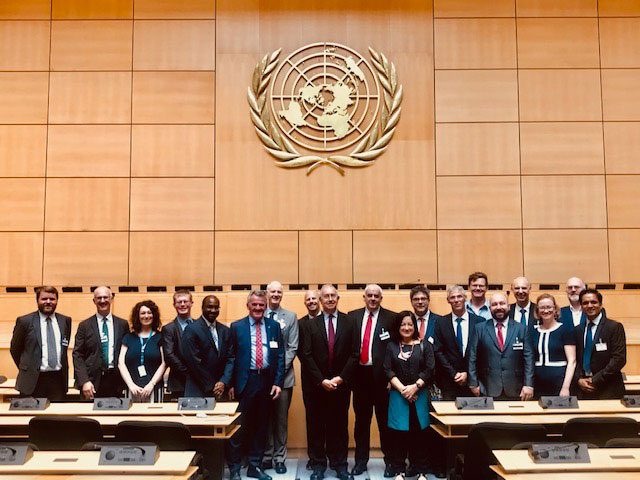This article is from the Australian Property Journal archive
THE United Nations has formally adopted the International Fire Safety Standards Common Principles (IFSS-CP) as a global standard, which aims to provide a consistent approach to the safety and management of buildings.
The UN has invited representatives of national and local governments and stakeholders to apply Common Principles to promote the safety of buildings.
The IFSS is an industry-led global coalition of over 80 organisations, born in response to address differing or, in some cases, non-existent requirements in countries across the world to fire safety. Contrasting approaches have resulted in significant variations in the design, approval, construction methods and operation of buildings, impacting fire risk.
Once the IFSS-CP becomes more widely adopted and implemented across markets, the IFSS-CP in conjunction with the IFSS coalition, are planning to produce a rating system that will enable buildings to display a certificate to show compliance with fire safety.
Although this will take some time and involve discussions with governments and other regulators and the published IFSS-CP will act as a positive catalyst for these future discussions.
APIV chair and IFSS Coalition member Robert Hecek said the IFSS committee is already planning the following next steps in relation to the development of the future editions of the standard the IFSS-CP including a global directory of and roadmap to existing regulatory codes and a comparative dictionary for existing fire safety terms used in the IFSS-CP.
“We are now in process of developing an IFSS plan for a decade of fire safety 2020-2030, and hope to have a draft document ready for presentation in early 2021. The plan is directed at national and local governments, civil society, professional bodies and private companies.
“The global plan is to support development of national and local plans and at the same time provide a framework for coordinated activities at a global level in areas of fire safety.”
The IFSS-CP was launched last month after more than three years since London’s Grenfell Tower cladding fire tragedy.
Although the COVID-19 global pandemic has become centre of attention, the use of combustible cladding remains a significant issue globally. As recently as May this year, fire engulfed the 48-storey Abbco tower in Sharjah, near Dubai in the United Arab Emirates.
Dubai has seen a spate of building fires in recent years, including twice at the 79-storey Torch tower – first in 2015 and again in 2017, and the Zen tower in Dubai Marina in May 2018.




